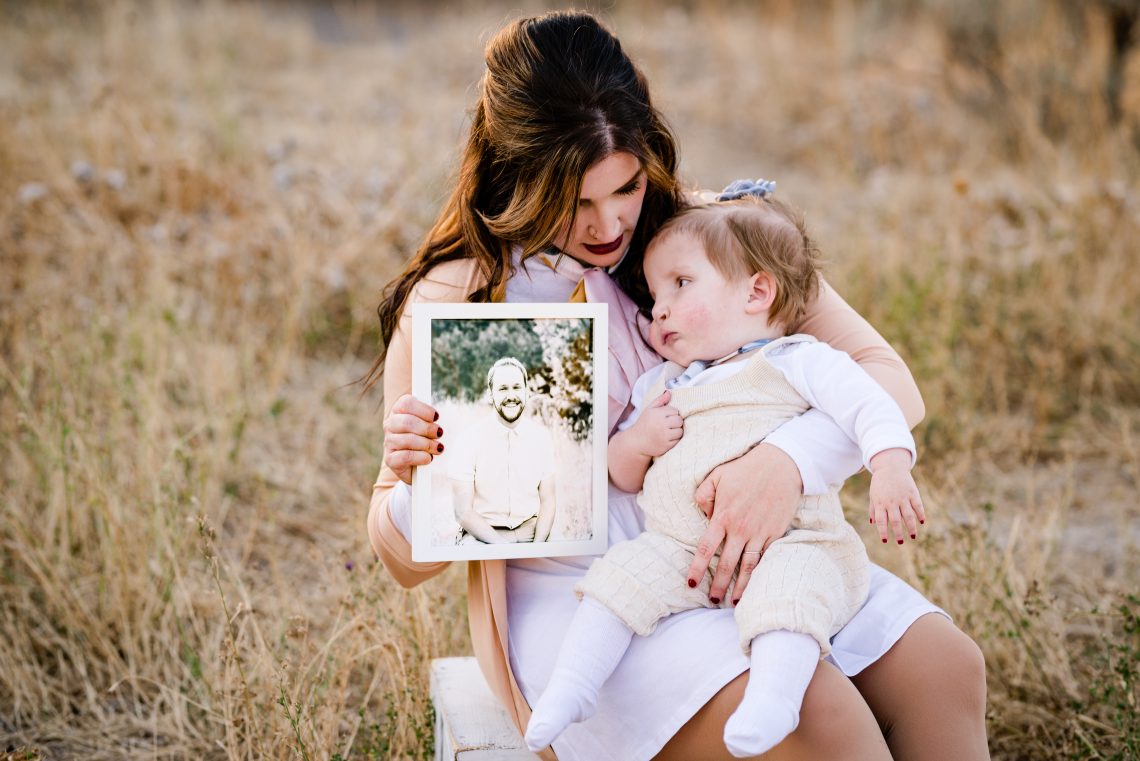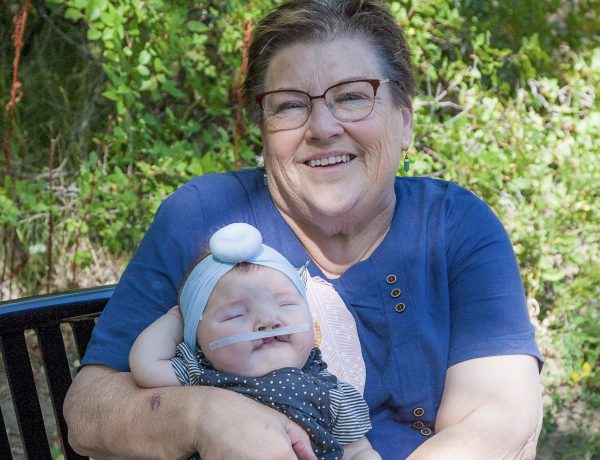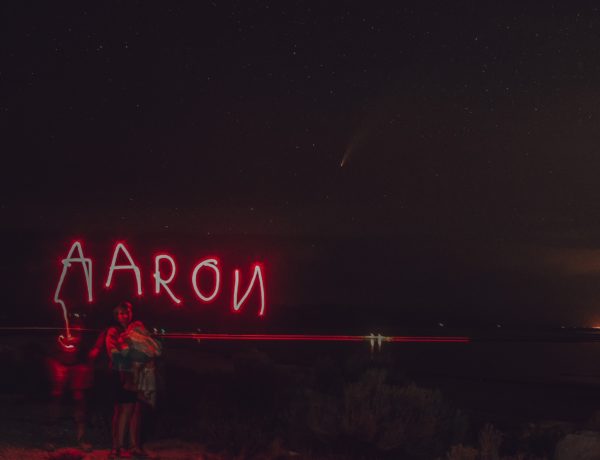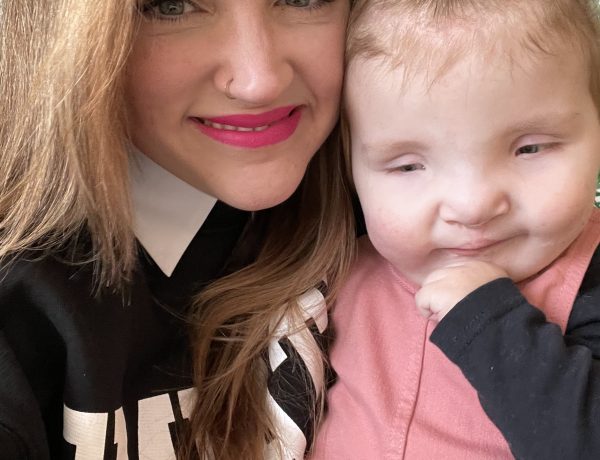Is there a place on LinkedIn where we can claim grief as a profession? What about a skill? Would someone write me a recommendation about my professional resume with a mention of my side-hustle in grief?
If there was a place for grief on LinkedIn, it would be displayed as clearly as my job history.
Grief needs space in the professional world. And 2020 has made that clearer than ever.
For those that don’t know my resume in grief, here’s my experience. My daughter—that beautiful badass of a human—was born in April of 2019 with CHARGE syndrome. She lives a life full of joy, courage, celebration, and strength. However, there is a form of grief that comes with unexpectedly navigating parenting a child with disabilities and medical complexities. This grief can’t be ignored. You planned all your life for Italy, but you unexpectedly entered Holland. That grief is real. If you know, you know.
It wasn’t long after we began navigating the unknowns in parenting our super rare, awesome daughter Sloan that my mom (Sloan’s grandma) and key advocate, friend, and community beacon passed away. It was (and still is) devastating.
And, just as we thought we were picking up the pieces and beginning to take a breath after my mom’s passing, Sloan’s wonderful dad—my husband and forever best friend—passed away in June. This marked the ultimate moment in my grief. This loss has been the most painful and challenging to face as I wake up every morning and go to sleep every night. I can’t verbalize how much I miss my mom and my husband, so I won’t even go there. (That’s not what this is about, anyway.)
So…There it is. That’s my grief resume. I’ve hit the executive-level of grief now, and it’s interesting being here. I get to experience all the stress and weight of being a grief exec, but there aren’t any financial benefits, yachts, or million-dollar mansions. Just the responsibility. This executive level isn’t glamorous or rewarding.
With this resume and the state of the world as we are nearing the end of hell’s favorite year, I want to share some thoughts about the most uncomfortable topic on the most buttoned-up social media site I know. Why?
Because we deserve to spread empathy. Even at work.
Whether you know it or not, you have a colleague, or two, or five that are gaining professional experience in grief. They need space and empathy, and the questions I find people asking me often are: What does “space” or “empathy” look like? What do I say to someone with your level of grief?
As someone whose life—personal and professional—is intertwined with grief, I have advice to share.
First things first: I work with an amazing group of people who have supported me every step of the way through my grief. I can only write this article thanks to their never-ending support, acceptance, and understanding. Through my daughter’s traumatic birth, the hard-hitting sudden loss of my mom, and the terrifying, unexpected loss of my husband. What I’m sharing stems from their efforts and action.
- It’s okay to let them be not okay.
This concept is from one of my favorite books on grief: It’s OK That You’re Not OK. For those who haven’t experienced the depths of grief (myself included, pre-2019), the thought of quickly looking at the bright side is appealing. How many times do we hear “Everything happens for a reason!” or “They’re in a better place now.” Phrases like this serve to comfort the non-grieving, it satisfies our innate need for validation, and puts the human experience into a box that we can close and move forward from. In a professional setting, this can be a default response.
The problem with this response is that it creates a world in which the griever feels a need to bury their feelings, hide their emotions, force a smile in meetings, and ultimately validate their colleagues that aren’t comfortable with their level of grief. I hate to say this, because I love daisies and puppies and sunshine and soft blankets, but sometimes there just isn’t a bright side. Sometimes something is just a life-altering, never-ending, debilitatingly painful bummer. And sometimes it’s best for someone to support their colleague by saying “I’m with you. I hear you. And I’m sorry there’s nothing that can make this better.”
It’s okay for your grieving colleague to not be okay. And it really is okay for you to empathize or sit with them in their experience. If there is a bright side to any of this: the more you sit with a griever in their pain, the more you may gain an entirely new perspective on life and the realities of grief. This can result in shifted perspectives, including cherishing more quality time with loved ones and fostering a more connected, real, loving world—our jobs and colleagues included.
- Rally, rally, rally! …from afar.
Is there a coworker who just suffered a huge, sudden, unimaginable loss? This is the time to rally—and I mean TRULY rally—around them. But rally in a way that requires nothing of the griever. Some of the most supportive, heart-warming experiences I’ve had came from my friends, colleagues, and company rallying around me and my family in a way that I watched play out from afar. Especially in those visceral, early days of grief.
To be blunt, I was sure I was going to die of heartbreak in those early days, but the simple acts of kindness and community support kept me going. I still hold on to those memories today when I’m having a down moment.
So, what does rallying look like? At the risk of sounding cliché: it’s the simple things. Grocery hauls, quickly handling OOO communications, picking up where someone left off at work (judgment-free), giving the griever space to grieve, and most of all: communicating the support, shared grief, and general weight of a loss from afar. Every small moment, message, and action matters. You don’t need to say the perfect thing. Just put yourself in the griever’s shoes. What would you want to hear? How would you feel? Once you ask yourself those questions and sit closely with them for a moment, then just step up.
Just say something.
- Read the room, because a grievers gonna grieve.
As someone in the depths of grief returns to work, the key question to ask yourself is: what do they need? After a long OOO hiatus when my husband died, all I wanted was to quietly slide back into my work like I never left. But if you know me, you know I’m not normally a quiet person, so I feared that kind of a transition would be difficult.
Through my transition back, my boss exemplified leadership in one of the most difficult things you can face as a manager: managing a sad, unreliable person grieving their major life losses. My boss met with me once every several weeks while I was out to simply check-in after my husband died. He never tip-toed around me or the heaviness of my life in that moment. He has always been understanding when I tell him I have a day that I just can’t be present at work. And as I slid back into my job, I was graciously allowed space for my grief. My team, my boss, and my company played a large role in that and still do today.
Seven months later and I still manage to come up with the most ridiculous (and embarrassing) questions that my grief-brain-fog can’t seem to answer, and I rely on my colleagues to help me in the most unbelievably basic ways. They cheerfully help me whenever they can without question.
This is how you read the room. This is how you let a griever grieve at work. This support will stick with me for years to come.
- Remember that through it all, the griever is still a human. With a career.
After my loss, I was sure people would never look at me the same. I do tend to get the “sad people” treatment wherever I go, whether that’s coffee shops, restaurants, movie theaters, etc. But work has been refreshing, because I’m not viewed as such a sad person. The best thing beyond the support and love I received from my colleagues has been the genuine, meaningful validation around still being a valuable professional that coworkers and leadership believe can contribute to the company long term. It’s important to remember that through all of the pain, heartache, and sadness, whoever is facing unbelievable loss and grief is still a person. This person once had a life and career before this grief and will continue to have a life and career after. Genuine, meaningful validation and a purpose at work can help in creating a sense of normalcy and purpose in waking up every morning.
Grief in the professional world is weird. It feels awkward to talk about metrics, ROI, and company goals when you are on Zoom with a static image of a face you know is experiencing one of the worst moments of their life. We have seen a lot of this level of grief in 2020, and this time of year only magnifies that feeling of emptiness and loss for so many who can’t have their loved ones at the dinner table with them this holiday season.
So, as professionals, it’s our time to step up as people too. Empathize. Be real. And know that we’re all still human – developments in AI or not. Professional communities are communities too. The power of grace, support, and empathy that can come from a team of employees (or an entire company) can be just as powerful as any other source of community. Let’s use that power to not only build better products and reach company goals, but support each other in our personal moments of hardship and pain, too.
To those who have been in my professional community this year: thank you. The realist in me wants to say 2020 was the worst, but there are many of you who made it slightly less worse. You are why I’ve made it to 2021. To those in my professional community who are also in the throes of grief: you’re not alone. Ever. Allow yourself to mute your video on Zoom, send sad gifs, and not feel the need to pretend you’re okay when you’re really, simply not.
I’m truly hopeful 2021 will bring brighter futures ahead in both the personal and professional world.
But if it doesn’t, I’m here for you in that, too. And we’ll get through it together.



